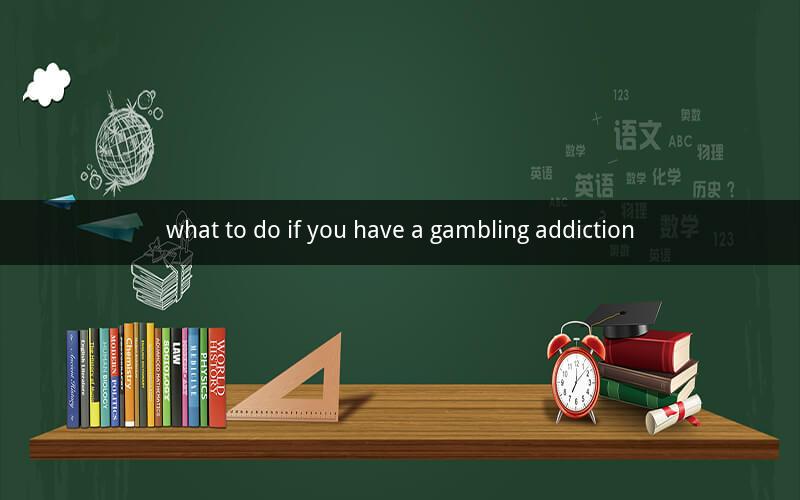
Table of Contents
1. Understanding Gambling Addiction
2. Identifying the Signs of a Gambling Problem
3. The Psychological and Emotional Aspects
4. Impact on Relationships and Finances
5. Seeking Professional Help
6. Treatment Options
7. Support Groups
8. Self-Help Strategies
9. Legal Consequences
10. Prevention and Education
1. Understanding Gambling Addiction
Gambling addiction, also known as pathological gambling or compulsive gambling, is a condition where individuals develop an irresistible urge to gamble, regardless of the negative consequences. It is considered a behavioral addiction and can be as severe as substance abuse disorders.
2. Identifying the Signs of a Gambling Problem
Recognizing the signs of a gambling addiction is the first step towards overcoming it. These signs may include:
- Spending increasing amounts of time and money on gambling activities.
- Feeling restless or irritable when unable to gamble.
- Continuing to gamble despite financial, relationship, or work-related problems.
- Lying to hide the extent of the gambling problem from loved ones.
3. The Psychological and Emotional Aspects
Gambling addiction can have significant psychological and emotional effects on individuals. It may lead to depression, anxiety, and mood swings. Some individuals may turn to alcohol or drugs to cope with their gambling-induced stress.
4. Impact on Relationships and Finances
Gambling addiction can strain relationships, leading to divorce, estrangement, and other familial issues. It can also result in financial ruin, as individuals may lose their savings, homes, and investments.
5. Seeking Professional Help
Seeking professional help is crucial in treating gambling addiction. Therapists and counselors can provide personalized treatment plans tailored to individual needs.
6. Treatment Options
Treatment options for gambling addiction may include:
- Cognitive-behavioral therapy (CBT)
- Contingency management
- Medication for co-occurring disorders
- Family therapy
7. Support Groups
Support groups such as Gamblers Anonymous can offer a sense of community and mutual support to those struggling with gambling addiction.
8. Self-Help Strategies
Individuals can adopt various self-help strategies to overcome their gambling addiction, such as:
- Setting strict limits on gambling time and money.
- Keeping a gambling diary to monitor their behavior.
- Developing alternative hobbies to replace gambling.
9. Legal Consequences
Gambling addiction can have legal consequences, such as fraud, embezzlement, and other criminal offenses. Understanding the legal implications of gambling addiction can help individuals seek help before the situation worsens.
10. Prevention and Education
Prevention and education are essential in combating gambling addiction. By promoting awareness and providing resources to those at risk, we can help reduce the prevalence of this issue.
---
What to Do if You Have a Gambling Addiction
If you find yourself struggling with a gambling addiction, there are several steps you can take to overcome it:
- Acknowledge Your Problem: The first step is to admit that you have a gambling addiction. This may involve seeking the help of a therapist or counselor.
- Seek Professional Help: Consult with a mental health professional who specializes in treating gambling addiction. They can provide guidance and support throughout your recovery journey.
- Create a Support System: Surround yourself with friends and family who are supportive of your decision to overcome your addiction. Consider joining a support group such as Gamblers Anonymous.
- Develop Coping Strategies: Find healthy ways to cope with stress, anxiety, and boredom. Engage in activities such as exercise, meditation, or hobbies.
- Set Goals: Establish clear, achievable goals to guide your recovery process. This may include setting strict limits on your gambling time and money.
- Monitor Your Progress: Keep track of your recovery journey and celebrate your successes along the way. Adjust your goals as needed.
- Stay Committed: Recovery is an ongoing process, and it requires commitment and dedication. Remain committed to your goals and support system.
---
FAQs and Answers
1. What is gambling addiction?
Gambling addiction is a condition where individuals develop an irresistible urge to gamble, regardless of the negative consequences.
2. How do I know if I have a gambling problem?
Signs of a gambling problem include spending increasing amounts of time and money on gambling, lying to hide your gambling habits, and experiencing financial, relationship, or work-related problems.
3. Can gambling addiction be treated?
Yes, gambling addiction can be treated through various methods, such as cognitive-behavioral therapy, support groups, and medication for co-occurring disorders.
4. Is there a medication to treat gambling addiction?
There are no specific medications to treat gambling addiction, but medication may be prescribed to address co-occurring disorders such as depression or anxiety.
5. Can I recover from gambling addiction on my own?
While it is possible to overcome gambling addiction on your own, seeking professional help and joining a support group can greatly improve your chances of success.
6. What role does family therapy play in treating gambling addiction?
Family therapy can help improve communication and resolve issues that may have contributed to the development of the gambling addiction.
7. Are there any support groups available for individuals struggling with gambling addiction?
Yes, Gamblers Anonymous and other support groups provide a sense of community and mutual support to those struggling with gambling addiction.
8. How can I help a loved one with a gambling addiction?
Encourage your loved one to seek professional help, offer support, and be patient throughout their recovery journey.
9. What is the impact of gambling addiction on finances?
Gambling addiction can lead to significant financial loss, including the loss of savings, homes, and investments.
10. How can I prevent gambling addiction in myself or others?
Set strict limits on gambling time and money, educate yourself about the risks of gambling addiction, and seek support from professionals and support groups when needed.